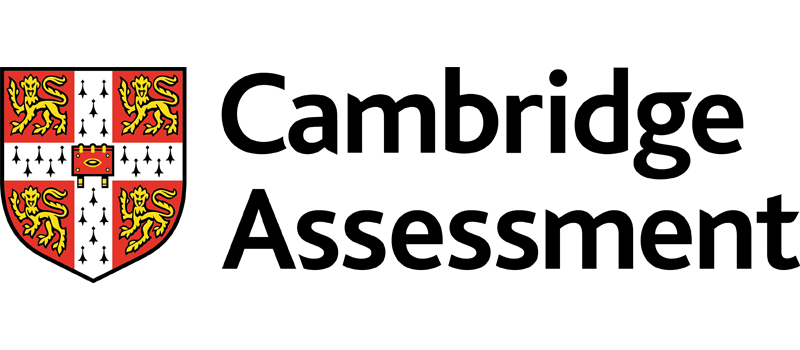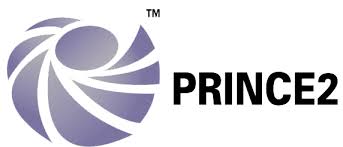
Leadership Skills, Strategic Planning, and Excellence in Decision-Making
Course ID: 2511177101397EGI
Course Dates : 17/11/25 Course Duration : 5 Studying Day/s Course Location: Dubai, UAE
Language: Bilingual
Course Category: Professional and CPD Training Programs
Course Subcategories: Leadership and Management Excellence
Course Certified By: * Projacs Academy
* Professional Training and CPD Programs
Certification Will Be Issued From :
KSA
Course Fees: £2,942.52
Vat Not Included in the price. VAT may vary depending on the country where the course or workshop is held.
Click to Pay
Date has passed please contact us Sales@e-s-hub.com
Course Information
Introduction
Leadership is not merely a position of authority but a dynamic interplay of vision, influence, and execution. In an era where organizations face unprecedented complexity due to globalization, technological advancements, and shifting workforce expectations, effective leadership has become a cornerstone of sustainable success. This course delves into the critical components of leadership skills, strategic planning, and decision-making excellence, equipping participants with tools to navigate challenges and seize opportunities. Drawing on seminal theories such as John Kotter’s model of leadership versus management and Peter Drucker’s principles of strategic planning, this program emphasizes the importance of aligning individual capabilities with organizational goals.
Despite its centrality to organizational performance, leadership remains one of the most misunderstood domains in professional practice. Many leaders struggle to balance short-term operational needs with long-term strategic objectives, often resulting in misaligned priorities or missed opportunities. For instance, Kodak’s failure to adapt to digital photography despite having early access to the technology underscores how poor strategic decisions can undermine even the most established brands. By addressing these gaps through evidence-based frameworks, this course empowers participants to avoid common pitfalls while fostering innovation and resilience within their teams.
The benefits of mastering leadership skills extend beyond individual growth; they ripple across entire organizations. Leaders who excel in strategic planning are better equipped to anticipate market trends, allocate resources efficiently, and foster a culture of accountability. Consider the example of Microsoft under Satya Nadella’s leadership, where a renewed focus on cloud computing and inclusivity transformed the company into a global powerhouse. Similarly, individuals who hone their decision-making abilities contribute to improved team morale, enhanced productivity, and stronger stakeholder relationships—key drivers of competitive advantage.
Decision-making, when approached strategically, transcends gut instinct to incorporate data-driven insights and ethical considerations. The Cynefin framework, developed by Dave Snowden, provides a valuable lens for understanding different types of problems and tailoring responses accordingly. Whether grappling with simple, complicated, complex, or chaotic scenarios, leaders must cultivate both analytical rigor and emotional intelligence. This dual focus ensures that decisions are not only technically sound but also resonate with diverse stakeholders, thereby enhancing buy-in and implementation success.
Practical applications abound in industries ranging from healthcare to finance. For example, during the COVID-19 pandemic, hospital administrators had to make rapid yet informed decisions about resource allocation, patient care protocols, and staff safety measures. Those who relied on robust strategic plans and collaborative leadership styles were able to mitigate risks more effectively than those operating without clear frameworks. Such real-world examples underscore the universal relevance of the course content, making it applicable across sectors and functional areas.
Ultimately, this program seeks to bridge theory and practice, enabling participants to transition from reactive managers to proactive leaders. By integrating cutting-edge research, interactive exercises, and case studies, the course fosters a learning environment conducive to personal and professional transformation. Participants will emerge equipped not only with actionable strategies but also with the confidence to lead authentically and decisively in an ever-evolving landscape.
Objectives
By attending this course, participants will be able to:
Analyze key leadership theories and apply them to real-world workplace scenarios.
Evaluate organizational challenges using strategic planning frameworks like SWOT analysis and PESTLE analysis.
Design comprehensive action plans aligned with organizational goals and stakeholder expectations.
Implement decision-making models (e.g., Vroom-Yetton-Jago) to address complex business problems.
Apply emotional intelligence principles to enhance team dynamics and communication effectiveness.
Assess ethical dilemmas in leadership and propose solutions that uphold integrity and compliance.
Synthesize feedback mechanisms to continuously improve leadership practices and outcomes.
Who Should Attend?
This course is ideal for:
Mid-to-senior-level managers seeking to refine their leadership capabilities and drive organizational change.
HR professionals tasked with developing leadership pipelines and fostering talent development initiatives.
Consultants and entrepreneurs aiming to build scalable businesses through strategic foresight and decisive action.
Educators and trainers responsible for designing leadership curricula or delivering workshops on related topics.
These groups will find the course invaluable as it addresses core competencies essential for navigating modern workplace complexities. While prior experience in leadership roles is beneficial, the course is structured to accommodate intermediate learners who possess foundational knowledge but aspire to deepen their expertise.
Training Method
• Pre-assessment
• Live group instruction
• Use of real-world examples, case studies and exercises
• Interactive participation and discussion
• Power point presentation, LCD and flip chart
• Group activities and tests
• Each participant receives a 7” Tablet containing a copy of the presentation, slides and handouts
• Post-assessment
Program Support
This program is supported by:
* Interactive discussions
* Role-play
* Case studies and highlight the techniques available to the participants.
Daily Agenda
The course agenda will be as follows:
• Technical Session 08.30-10.00 am
• Coffee Break 10.00-10.15 am
• Technical Session 10.15-12.15 noon
• Coffee Break 12.15-12.45 pm
• Technical Session 12.45-02.30 pm
• Course Ends 02.30 pm
Course Outlines
Foundations of Leadership
Understanding Leadership Styles: Transactional vs. Transformational Leadership
Key Traits of Effective Leaders: Vision, Integrity, and Adaptability
Emotional Intelligence in Leadership: Self-Awareness and Empathy
Building Trust and Credibility Within Teams
Day 2:
Principles of Strategic Planning
Introduction to Strategic Planning Frameworks: SWOT, PESTLE, and Balanced Scorecard
Setting SMART Goals for Long-Term Success
Aligning Organizational Strategy with Stakeholder Needs
Overcoming Resistance to Change During Implementation
Day 3:
Advanced Decision-Making Techniques
Rational vs. Intuitive Decision-Making Models
Applying the Cynefin Framework to Different Problem Types
Managing Risk and Uncertainty in High-Stakes Decisions
Ethical Considerations in Leadership Decision-Making
Day 4:
Practical Applications and Case Studies
Real-World Examples: Lessons from Successful Leaders (e.g., Satya Nadella, Indra Nooyi)
Group Exercise: Developing a Strategic Plan for a Hypothetical Organization
Role-Playing Scenarios: Practicing Difficult Conversations and Conflict Resolution
Leveraging Technology for Data-Driven Decision-Making
Day 5:
Continuous Improvement and Future Trends
Creating Feedback Loops for Ongoing Leadership Development
Emerging Trends in Leadership: AI, Remote Work, and Diversity Initiatives
Personal Action Plans for Post-Course Application
Closing Remarks and Q&A Session



















































